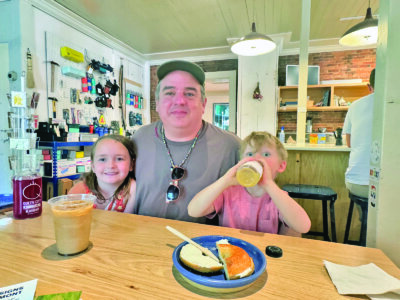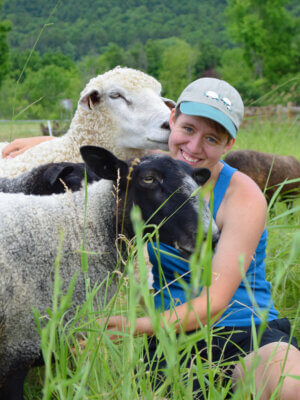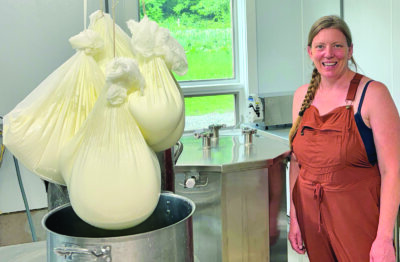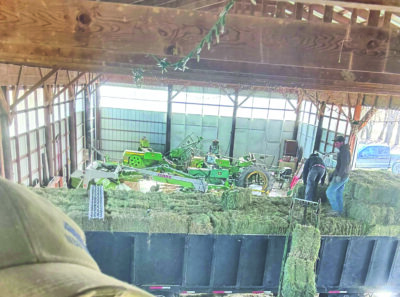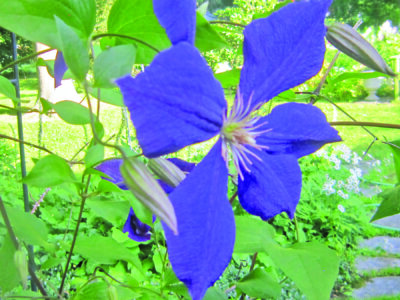Watershed science grant benefits teachers
The Lake Champlain Basin Program recently awarded an education grant to the University of Vermont Lake Champlain Sea Grant program to create the Watershed Alliance Teacher and Researcher Partnership.
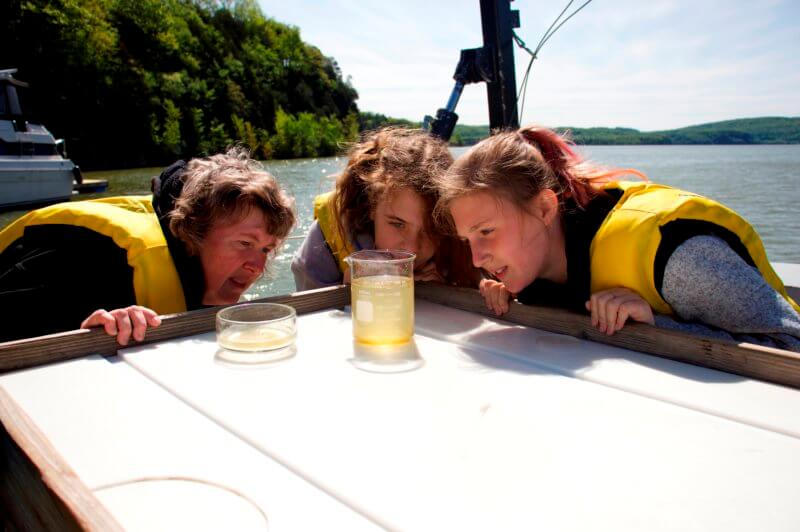
A teacher and her students examine a phytoplankton sample aboard the University of Vermont research vessel on Lake Champlain.
This new partnership will support middle and high school teachers employed by schools in the Lake Champlain Basin in Vermont and New York, helping them foster stronger connections with researchers to integrate watershed science into their classroom. The year-long program includes hands-on learning opportunities aboard the Marcelle Melosira, the University of Vermont’s state-of-the-art research vessel, involvement in ongoing water research projects and development of educational materials and lesson plans.
Although there is no cost to participate, space is limited, so teachers will be selected through an application process. Applications will be accepted until Feb. 24 with successful applicants notified by mid-March.
Priority will be given to teachers from schools with a high percentage of students receiving free or reduced lunch and/or diverse student bodies. Teaching teams are encouraged to sign up together.
Once accepted, if a disability-related accommodation is needed to participate, teachers should contact Ashley Eaton at 802-391-4410 by May 1.
Participants will receive a stipend for their time and purchase of supplies to implement their lessons. Graduate credits are available although teachers are responsible for paying the applicable tuition fees.
During the intensive summer session, July 31-Aug. 4, teachers will work alongside researchers to conduct field assessments, water quality monitoring and limnological sampling of Lake Champlain and learn about the watershed’s unique characteristics.
They also will begin to brainstorm ideas for a watershed STEAM (science, technology, engineering, art and mathematics) based unit and be matched with a researcher to collaborate on the development of their new curriculum. After being tested in the classroom, these individual lessons and corresponding materials will be compiled into a larger curriculum to be shared with other teachers in the Lake Champlain Basin.
Related Stories
Popular Stories
If you enjoy The Charlotte News, please consider making a donation. Your gift will help us produce more stories like this. The majority of our budget comes from charitable contributions. Your gift helps sustain The Charlotte News, keeping it a free service for everyone in town. Thank you.
Andrew Zehner, Board Chair




